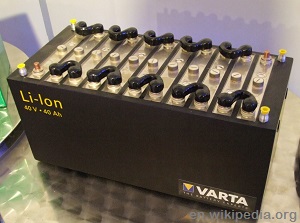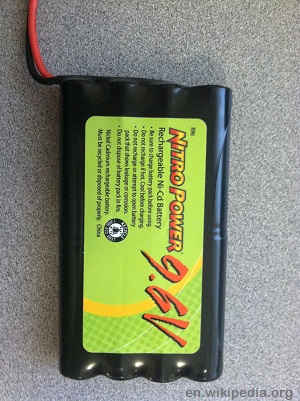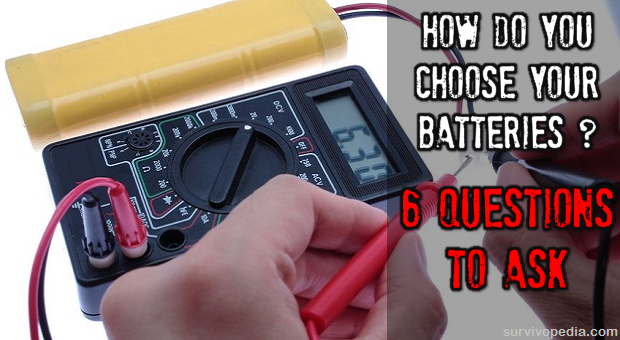Once you figure out how to generate electricity using solar, wind, water, or some other method, you have truly achieved a milestone.
Your job is less than half done now because you still need a way to store excess power. You will also need to control and stabilize current flow so that it does not damage devices attached to the power source.
Today, most people in off-grid situations or preparing for long term survival rely on batteries. Unfortunately, there is no such thing as a perfect battery for every person, let alone one battery type that will suit every need for your bug out location.
As you learn more about these battery types, take the time to make sure you know as much as possible about your current and projected energy usages.
Will you be starting off with conventional appliances and power needs?
Are you planning to have a small farm that will eventually utilize tractors and other equipment?
How will your energy usage plans change to accommodate growing food indoors, purifying water, and dealing with weather pattern changes?
Unless you have all of these scenarios firmly in mind, it will be very hard to gauge power usage and find the best batteries for your needs.
But let’s see what the choices are, and the 6 questions to ask when choosing between common types of batteries.
Lead Acid Batteries
This battery type uses acid as an electrolyte between to different types of metal.
As ions are exchanged, the negative terminal (US versions) of the battery gives off electrons.
Power generating devices such as alternators, solar panels, or other devices feed electrons into the positive terminal in order to start the ion exchange all over again.
- Common uses – automobile ignition systems, RV and boating systems.
- Variations – shallow cycle batteries are used in ignition systems because they produce large amounts of power in short bursts. Deep cycle variations produce less power over a longer period of time.
- Average lifespan – shallow cycle batteries can last from 3 – 5 years of light duty. Deep cycle batteries can be charged and discharged to 45% of their capacity for 3 – 5 years or more depending on quality of the materials and thickness of the plates used.
- Can they be rebuilt or refurbished? Yes, they can.
- Advantages for off grid power storage – Lead-acid batteries are cheap and readily available. They can be hooked up in parallel or series banks and provide power for most needs.
- Disadvantages for off grid power storage – Emit hydrogen gas that can start an explosion or fire. This is especially important to consider if you try to store batteries in a closed in area or one where heat builds up quickly.
Be wary of advice on deep cycle vs shallow cycle batteries. You can do more with a mix of battery types rather than rely just on deep cycle variants. In situations where the weather is very cold, a deep cycle battery may fail when you need it most unless you spend more for ones that provide sufficient cold cranking amps.
Gel Batteries
Instead of using water to suspend electrolyte, gel batteries use a silica based gel instead.
- Common uses – They can be used in automobiles, but are most often found in marine boats and RVs.
- Variations – n/a
- Average lifespan – 500 – 6000 cycles
- Can they be rebuilt or refurbished? No, they can’t.
- Advantages for off grid power storage – Allow more current to be pulled from the battery as long as it is not in massive quantities. Gel batteries also produce less hydrogen and are less prone to spilling if the case is damaged.
- Disadvantages for off grid power storage – Overcharging or adding too much power at one time can cause the batteries to fail. Gel batteries also do not perform well in cold weather.
AGM (Absorbed Glass Mat) Batteries
Instead of using gel or water to hold electrolytes in place, AGM batteries use glass mats that allow electrons to move from one plate in the battery to the opposite one.
- Common uses – marine boats and motorcycles.
- Variations – n/a
- Average lifespan – 3 – 8 years.
- Can they be rebuilt or refurbished? They will require desulfating. Some methods may work better than others. A great deal depends on the damage to the internals of the battery and how many times it has been over charged or drained to deeply.
- Advantages for off grid power storage – They require very little maintenance while in use. AGM batteries also have a lower risk of exploding. You can also cycle them as deeply as 70 – 85% if the battery is good quality.
- Disadvantages for off grid power storage – They are more expensive than other battery types and harder to recondition.
Lithium Ion Batteries
 Small Lithium Ion batteries are most often found in electronic devices.
Small Lithium Ion batteries are most often found in electronic devices.
While there are large scale versions available for RV and marine use, they are still very expensive.
- Common uses – powering electronic devices
- Average lifespan – 1 to 10 years
- Can they be rebuilt or refurbished? No, they can’t.
- Advantages for off grid power storage – Lithium Ion batteries weigh less and take up less space than wet or gel batteries. They can also produce sharp, fast peaks in current as well as lower and slower supplies.
- Disadvantages for off grid power storage – These batteries are very expensive. In addition, they do not do well when over charged, or excessively deep cycled. Lithium Ion batteries also require a complex management system that to prevent them from being damaged. At the current time, there are no management systems on the market for off grid applications. If you decide to use Lithium Ion batteries for this purpose, you will need to design your own management and monitoring systems.
NiCd Batteries
 NiCd batteries utilize Nickel and Cadmium to store electricity.
NiCd batteries utilize Nickel and Cadmium to store electricity.
They differ from other batteries in terms of their ability to deliver a steady charge even if the are almost out of power.
- Common uses – electronic devices, cordless power tools.
- Variations – wet and dry versions.
- Average lifespan – up to 2000 cycles.
- Can they be rebuilt or refurbished? No, they can’t.
- Advantages for off grid power storage – They can be recharged very quickly and are known for supplying a very steady level of current. They are also more tolerant of cold weather than other batteries.
- Disadvantages for off grid power storage – They are very expensive, will be ruined if they are not charged up and used on a regular basis. Excessive deep cycling can ruin them. NiCd batteries also have a low tolerance for erratic charging; which makes them somewhat unsuitable for solar and other renewable fuel applications. You will need a battery management solution that smooths out the current flow before it enters the battery. It should be noted that NiMH batteries are similar to the NiCds in the sense that they also require a special power management system.
Edison Batteries
Edison Batteries use nickel and iron plus an electrolyte to store electricity. They are considered “wet cells” since the electrolyte is in the liquid form as opposed to gel or solid.
- Common uses – forklifts, mining, and other applications where heavy amounts of voltage must be drawn for long periods of time. They also tend to be favored by off gridders despite many problems.
- Variations n/a
- Average lifespan – 10 years to over 30 years.
- Can they be rebuilt or refurbished? No, they can’t.
- Advantages for off grid power storage – temperature resistant, can store and discharge large amounts of current as long as it is done slowly. They are also environmentally safer than other batteries because they do not contain lead or other heavy metals.
- Disadvantages for off grid power storage – They can be damaged by rapid charging, very large and heavy, do not respond well to massive and sudden power drains.
Are There Mechanical Alternatives to Batteries?
Even though I have been tinkering with energy systems for several years, I have yet to find a battery or battery spec that suits all my requirements.
This, in turn, often makes me wonder if there are better, and untapped way to store power using purely mechanical (as opposed to chemical) means. For example, ropes twisting around each other on an axis with a central gear might be used to store and release power generated by a wind turbine.
While converting between mechanical power and electricity has its share of challenges, perhaps thinking outside the battery box will yield some interesting results.
It can be said that modern off gridders are living with a false sense of security because they do not truly know how long their power storage batteries will remain functional. As you can see, some batteries have an expected lifespan of five years, while the most durable ones may not last an entire human life span.
Once society collapses, equipment used to make these batteries may no longer be available. As technology and skilled people become lost, rest assured that what works early on may not work later on.
If you truly want to avoid a second crisis after an initial social collapse, take the time now learn what you can about power storage off the grid.
Now is also a good time to think seriously about power storage methods that do not rely on chemicals.
This article has been written by Carmela Tyrell for Survivopedia.
[Total: 0 Average: 0/5]
Further reading:
http://www.otherpower.com/otherpower_battery_compare.html
http://africanenergy.com/new/wp-content/uploads/2012/08/GEL-technical_manual.pdf
http://www.homepower.com/articles/solar-electricity/equipment-products/lithium-ion-batteries-grid-systems/page/0/0
9 total views, 9 views today
Source:: Survivopedia




